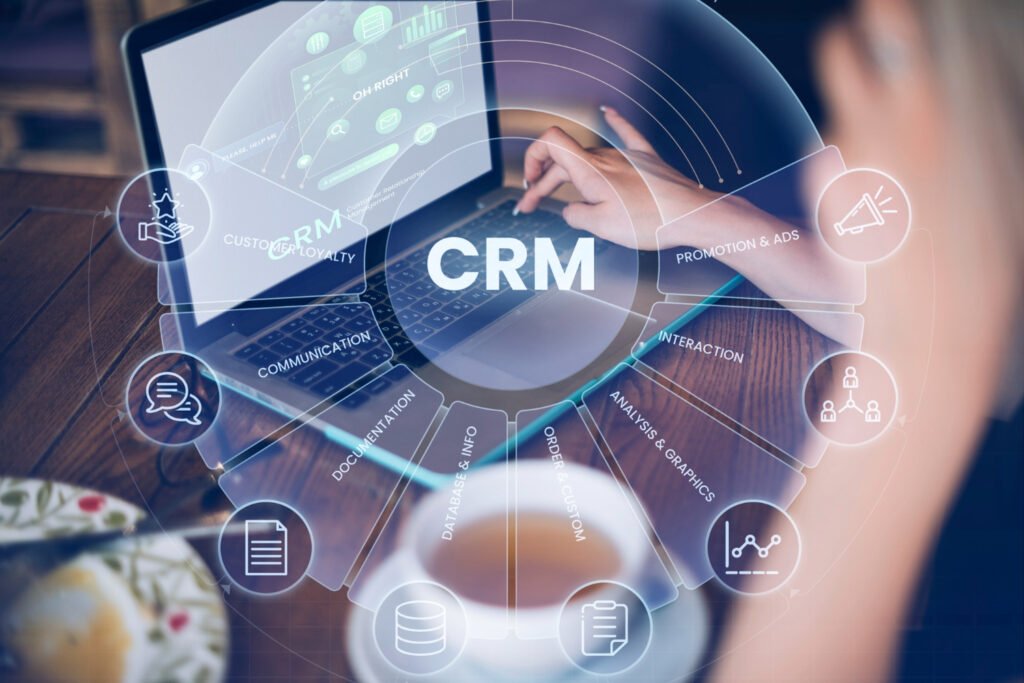In 2025, the global CRM market is projected to exceed $120 billion, reflecting the growing demand for personalized customer engagement and automation. Businesses, whether in B2B or B2C, are increasingly relying on CRM platforms tailored to their specific needs. This customization is handled by expert teams from a CRM software development company, which understands the varying dynamics of B2B and B2C interactions.
As companies move towards flexible digital ecosystems, CRM adoption in cloud computing has surged, enabling scalable, secure, and cost-effective implementations.
B2B vs. B2C CRM: What Makes Them Different
To understand the different customization strategies, it’s essential to recognize the core differences between B2B and B2C CRM systems.
B2B CRM Characteristics
- Designed to manage longer sales cycles and nurture long-term relationships
- Focuses on detailed account management with multiple stakeholders
- Requires extensive documentation and client-specific service modules
- Typically integrated with enterprise tools like ERP, project management, and procurement systems
B2C CRM Characteristics
- Built for fast-paced transactions and immediate customer interactions
- Handles large volumes of customer data for real-time engagement
- Emphasizes personalization and marketing automation
- Connects seamlessly with e-commerce platforms, mobile apps, and digital ads
Customization Strategies for B2B CRM Platforms
A CRM software development company working on B2B projects often focuses on features that support complex workflows and detailed reporting.
Popular Customization Areas
- Account hierarchy structures for managing multiple contacts and departments
- Custom sales pipelines for longer sales cycles
- Quote and proposal automation tools
- Integration with internal tools like ERP, billing, or inventory software
- Tailored dashboards for client-specific data analytics and reporting
B2B clients, such as IT service providers or manufacturing firms, typically need CRM solutions that support contract tracking, partner management, and pre- and post-sales collaboration.
Customization Strategies for B2C CRM Platforms
In B2C settings, CRM systems are customized to drive immediate engagement, loyalty, and repeat purchases. A CRM software development company in India usually incorporates scalable tools to handle high customer volume.
Popular Customization Areas
- Behavioral tracking for user journeys and purchase patterns
- Loyalty program modules to manage points, discounts, and reward tiers
- Marketing automation workflows for email, SMS, and push notifications
- Social media integration for real-time engagement
- Segmentation tools for targeted promotions
For example, a retail or e-commerce company would benefit from automated abandoned cart recovery, seasonal offer triggers, and integrated feedback systems.
Advantages of Partnering with a CRM Software Development Company in India
India has become a global hub for IT services, offering a balance of technical expertise and affordability. A CRM software development company in India provides several competitive advantages.
Why Businesses Choose India in 2025
- Access to large pools of skilled CRM developers and architects
- Expertise in advanced tools, AI, and machine learning integrations
- Cost-effective development models with high-quality output
- 24/7 development and support cycles
- Seamless adoption of cloud technologies, including CRM in cloud computing
Indian companies also specialize in building modular CRM platforms that adapt quickly to growing market demands, especially for startups and mid-sized enterprises looking to scale.
Latest Statistics Supporting CRM Customization
The growing preference for personalized CRM platforms is backed by strong data:
- Around 78 per cent of B2B buyers in 2025 reported higher trust in businesses that provide custom digital experiences.
- Over 85% of B2C consumers expect real-time responses and targeted marketing messages.
- Businesses using tailored CRM systems witnessed a 30 per cent boost in team productivity and a 25 per cent improvement in customer retention.
These figures highlight the necessity of industry-specific CRM systems.
Selecting the Right CRM Development Partner
Choosing the right CRM partner requires a thorough evaluation. Businesses should assess potential CRM vendors based on:
- Experience with industry-specific solutions
- Technical capabilities, including AI and cloud integrations
- Ability to support large-scale data handling and analytics
- Post-deployment support, security, and system scalability
- Integration compatibility with existing tools and infrastructure
Working with a CRM software development company that understands the nuances of both B2B and B2C environments ensures smoother implementation and better ROI.
Conclusion
The difference between B2B and B2C CRM customization lies in the business structure, customer behavior, and operational workflow. A one-size-fits-all CRM approach no longer meets the needs of modern businesses. Whether it’s managing long-term contracts or engaging thousands of individual buyers in real time, a reliable CRM software development company in India delivers the customized tools that drive performance.
With the increasing shift to CRM in cloud computing, flexibility, accessibility, and innovation are no longer optional—they are the new standard for success in both B2B and B2C domains.



